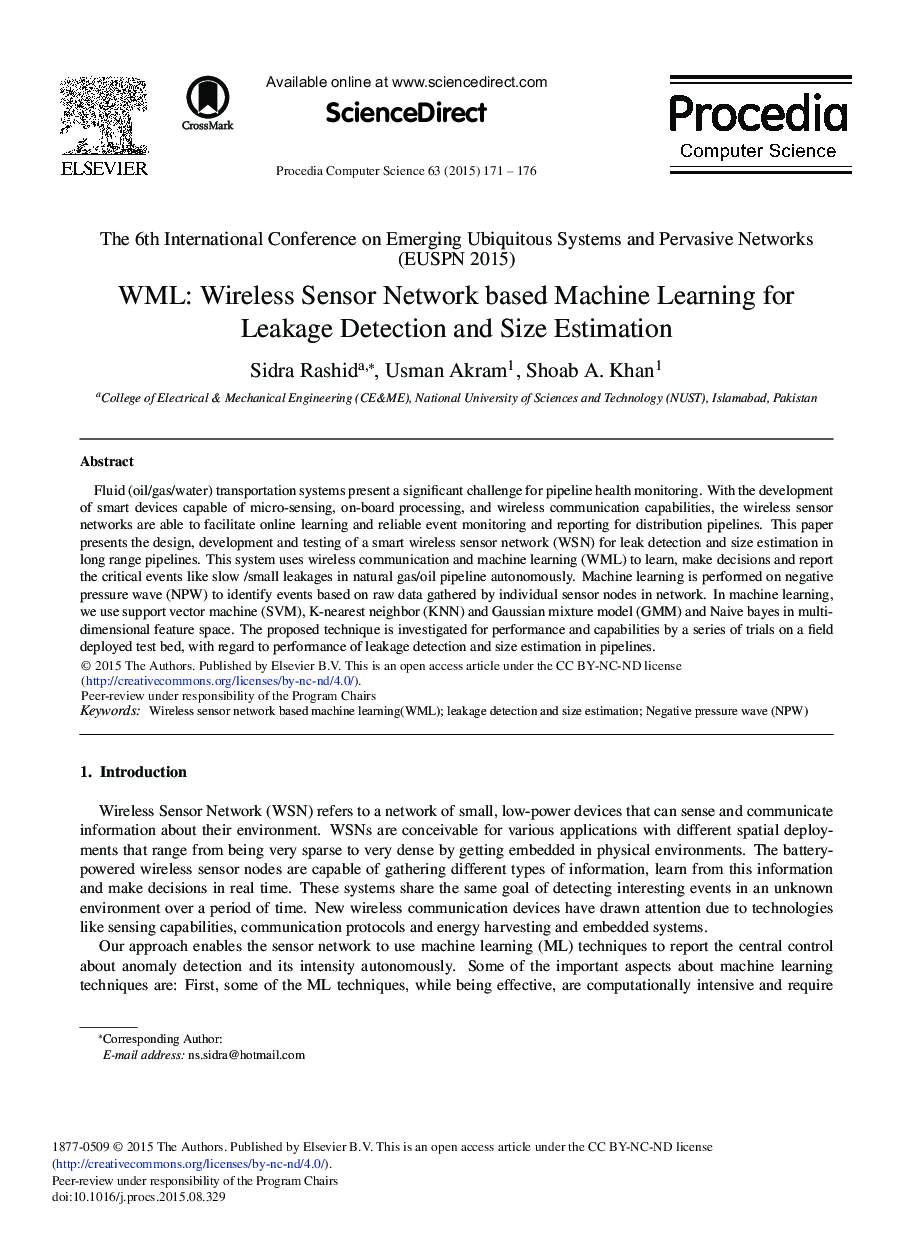| Article ID | Journal | Published Year | Pages | File Type |
|---|---|---|---|---|
| 484562 | Procedia Computer Science | 2015 | 6 Pages |
Fluid (oil/gas/water) transportation systems present a significant challenge for pipeline health monitoring. With the development of smart devices capable of micro-sensing, on-board processing, and wireless communication capabilities, the wireless sensor networks are able to facilitate online learning and reliable event monitoring and reporting for distribution pipelines. This paper presents the design, development and testing of a smart wireless sensor network (WSN) for leak detection and size estimation in long range pipelines. This system uses wireless communication and machine learning (WML) to learn, make decisions and report the critical events like slow /small leakages in natural gas/oil pipeline autonomously. Machine learning is performed on negative pressure wave (NPW) to identify events based on raw data gathered by individual sensor nodes in network. In machine learning, we use support vector machine (SVM), K-nearest neighbor (KNN) and Gaussian mixture model (GMM) and Naive bayes in multi- dimensional feature space. The proposed technique is investigated for performance and capabilities by a series of trials on a field deployed test bed, with regard to performance of leakage detection and size estimation in pipelines.
